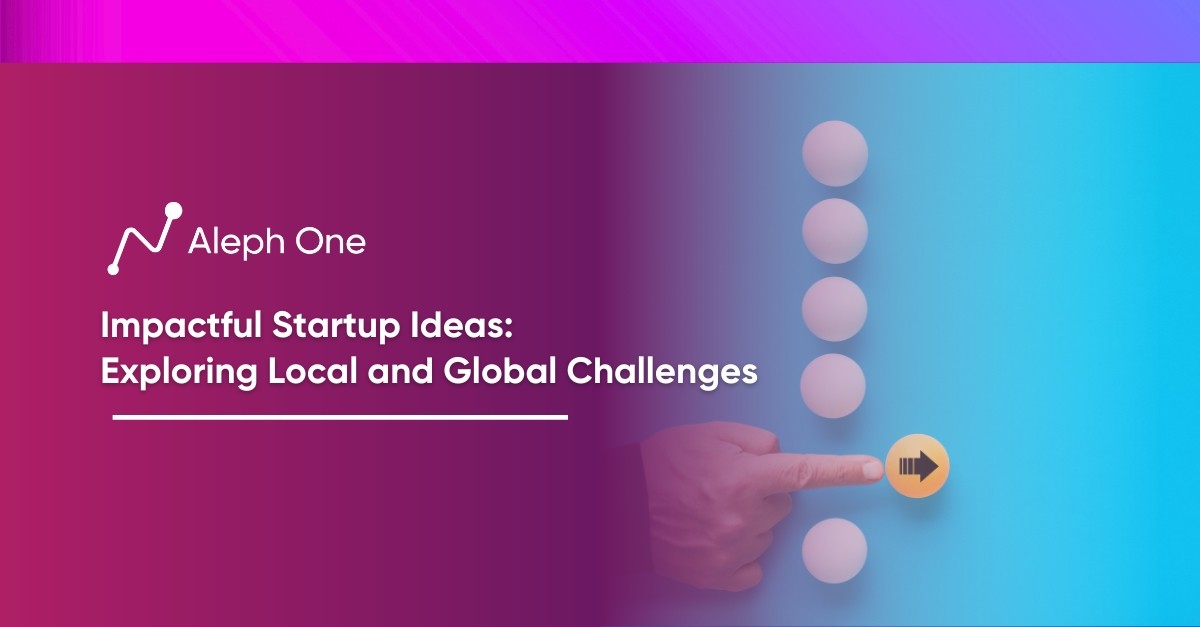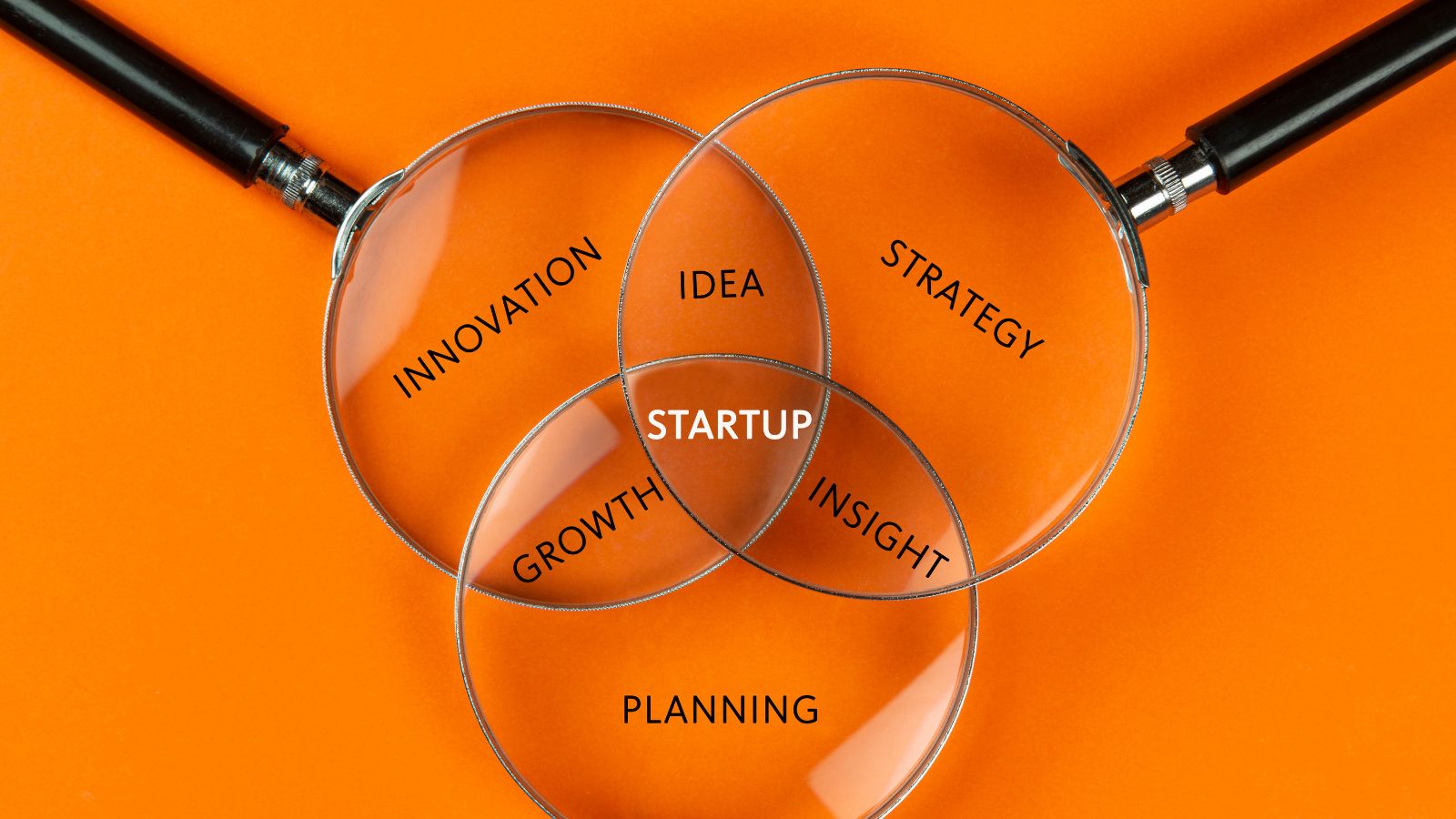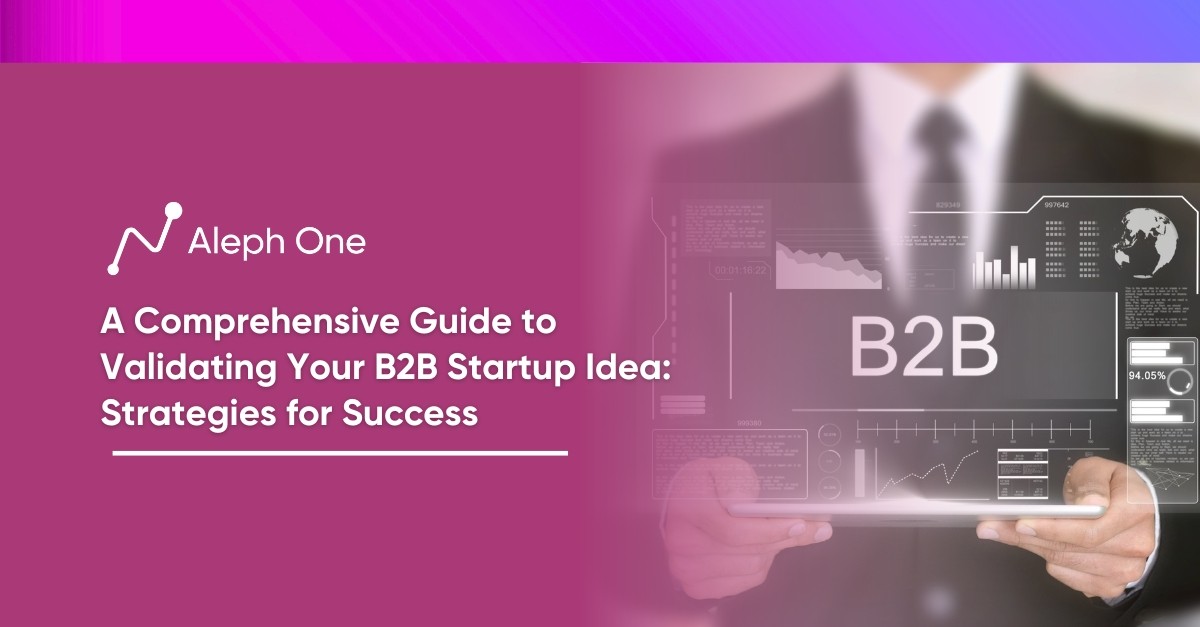Let’s work together to build something amazing. Share your project details and our team will reply to figure out the next steps to your success.

In a world filled with persistent problems, startups have the potential to create impactful solutions that address local and global challenges. By uncovering and understanding the issues faced by their communities, entrepreneurs can develop innovative ideas that make a difference. This article explores how startups are already making a difference by providing examples in public spaces, healthcare, and education. It also highlights the importance of evaluating ideas systematically and objectively, considering factors like problem-solution fit, market potential, scalability, and social impact. By harnessing these elements, entrepreneurs can develop ideas that truly matter and build thriving enterprises that transform lives and communities.

Uncover Problems Worth Solving: Local Challenges
Look around your local community to find persistent problems that need solutions. Local issues often go unnoticed or underserved, yet addressing them can lead to impactful startups. Consider challenges in public spaces, traffic, transit, healthcare access, education gaps, or community support systems.
How Startups Are Making a Difference
For example, many communities lack free or low-cost gathering spaces for people to connect. Startups like The Coven in Minneapolis or The Riveter in Seattle provide shared work and community spaces for women and marginalized groups. Many patients struggle to access affordable treatment or navigate the system in healthcare. Startups like Zocdoc and One Medical are making finding doctors easier and booking appointments.
Startups That Are Revolutionizing Education
Many communities need better infrastructure and services for mental health, senior care, youth programs, and more. Startups can build innovative solutions to address these issues.
Solving Problems That Matter
When evaluating local problems, consider issues that are persistent and underserved and that you have a genuine passion for solving. Consider issues affecting a wide range of people in your community, not just a narrow demographic. The solution should serve the broad public good. It also helps to choose problems you have experience with, so you can develop solutions that resonate with the affected people.
From Local to Global Impact
Local startups often have an advantage in solving community problems because the founders intimately understand the issues and customer needs. They can build solutions tailored to their communities and leverage local networks for feedback, collaboration, and growth. While the problems may be local, the answers can ultimately scale to help other communities facing similar challenges. Uncovering impactful startup ideas begins with looking in your backyard.
Think Global: Issues Impacting the World
The biggest challenges facing communities globally include poverty, inequality, climate change, lack of sustainable energy, food shortage, and healthcare gaps. These systemic issues require innovative solutions; startups can be essential in developing impactful solutions.
Poverty and Inequality
For example, poverty and inequality are persistent problems affecting billions of people worldwide. Startups focused on financial inclusion, access to education, and job opportunities are working to lift people out of poverty and make prosperity more equitable. Companies like Bridge International Academies, Anthropic, and Samasource provide underserved populations with affordable education, AI safety training, and digital jobs.
Environmental Changes and Challenges
Another urgent issue is climate change and environmental degradation. Startups in renewable energy, sustainable transportation, and green technology are creating solutions to reduce greenhouse gas emissions and pollution. For example, Better Place, Proterra, and Motiv Power Systems are making electric vehicles and infrastructure more accessible. Startups like Impossible Foods and Beyond Meat are developing plant-based meat alternatives to reduce demand for industrial animal agriculture, one of the most significant contributors to climate change.
Limited Healthcare and Nutrition Options
Lack of access to healthcare and nutritious food is also a significant issue globally. Startups are creating innovative solutions to improve health outcomes and food security in underserved communities. Zipline, a drone delivery startup, provides quick access to medical supplies in remote areas of Africa and South America. Hello Tractor, an ag-tech startup, offers an Uber-like app to help farmers in Nigeria access affordable tractor services to improve crop yields.
Small Change, Big Impact
While these global issues seem intractable, startups can drive change through scalable, purpose-driven solutions. By leveraging technology and innovation, entrepreneurs are tackling some of the world’s biggest challenges in a sustainable, impactful manner. With a shared vision of empowering communities and improving lives, startups are poised to improve the world.
Evaluate Your Idea: A Comprehensive Framework
Once you have identified a problem worth solving, you must determine if your solution is viable and impactful. The evaluation process should be systematic and objective, analyzing factors like problem-solution fit, market potential, competitive landscape, operational feasibility, business model, team, funding, scalability, and social impact.
Steps to Evaluating Your Idea
1. Evaluate if Your Solution Solves the Problem in a Meaningful Way
It should address the root causes and provide substantial value to users. Then assess the market potential and competitive landscape. Is there a significant enough addressable market, and can you differentiate it from existing solutions?
2. Determine if You Can Build and Deliver the Solution
Evaluate operational requirements like technology, partnerships, and resources. Ensure you have a workable business model that generates revenue to sustain operations. Consider if you have the right team and skills to execute the idea. And examine potential funding sources to get the startup off the ground.
3. Evaluate the Potential for Scalability
Scalability is also essential to maximize impact. Can your solution expand to new locations and communities over time? Think through how to overcome barriers to scale and reach more people.
4. Determine the Potential Social Impact of Your Solution
How will it positively affect people and communities? Are there measurable impacts you aim to achieve? Maximizing impact should be the north star that guides critical decisions as the startup evolves.
Keep Objectivity and Honesty at the Forefront of Your Evaluation
This comprehensive framework helps determine an idea’s viability and potential for real-world change. Be honest in your evaluations, and don’t hesitate to return to the drawing board if needed. The most impactful startups often start with imperfect ideas refined through customer feedback and collaboration. You can develop solutions that create a lasting impact at scale with persistence. But it begins with an objective evaluation of the problem, solution, and your ability to execute. Apply this framework rigorously to your idea and build the conviction to drive real change.
Passion and Purpose: Key Drivers of Success
Impact-driven startups are challenging to build and scale, requiring immense dedication and perseverance. Passion and purpose are two of the most crucial factors that drive entrepreneurs to push through obstacles and create solutions that genuinely matter.
Harnessing Motivation for Impactful Startup Ideas
Passion refers to a strong enthusiasm and care for the problem an entrepreneur is trying to solve. When entrepreneurs are deeply passionate about an issue, they develop a personal motivation and connection to the work. This passion fuels the resilience and determination needed to navigate the ups and downs of building a startup. Purpose refers to the motivation to create positive change and impact people’s lives. Entrepreneurs with a strong sense of purpose believe they work on something bigger than themselves. This gives them a vision and mission to work toward that transcends any temporary setbacks or failures.
Passion and Purpose Fuel Entrepreneurial Success
Together, passion and purpose create an internal drive in entrepreneurs that cannot be easily deterred. This drive pushes them to build innovative solutions, connect with customers and communities, and persevere through challenges. Without passion and purpose, entrepreneurs may give up too quickly in the face of obstacles or settle for solutions that do not fully address the problem. Entrepreneurs founded some of the most successful impact-driven startups with a genuine passion for the issues they aim to solve and an unwavering purpose to create change.
Impact in Action
For example, TOMS Shoes was founded by Blake Mycoskie after he witnessed the hardships faced by children without shoes during his travels. His passion for helping these children and providing shoes for those in need inspired him to create a sustainable solution. Lauren Bush Lauren founded FEED Projects, driven by her passion for tackling world hunger and her purpose to make a difference through entrepreneurial action. The passion and purpose of these founders have enabled their companies to thrive and create a substantial impact. Passion and purpose are vital for any entrepreneur to develop ideas that matter and build successful startups focused on change.
Collaboration is Key: Co-create With Your Community
Collaboration is essential to develop impactful startup ideas that truly address community challenges. Involving the people directly affected by the issues you want to solve will lead to more innovative solutions. Co-creating with your local community networks can provide critical insights into problems, validate your ideas, and even generate new concepts you may have yet to consider.
Gaining Valuable Insights
For example, the nonprofit startup Noora Health partnered with local communities in India to design a training program for frontline health workers. By collaborating with the people they aimed to serve, Noora gained valuable insights into community health needs and created a program tailored to local contexts. The training they developed has now reached over 15,000 health workers across India.
Generating Income and Helping the Environment
Another startup, Komaza, works with small-scale farmers in Kenya to plant trees, increase crop yields, and build sustainable forestry businesses. Komaza collaborated with local farmers to develop a model to generate income and improve the environment. Their community-based approach was vital to overcoming adoption barriers and creating a real impact. Over 7,000 farmers have joined the program, planting over 2 million trees.
Identify Key Groups of People You Want to Help
To co-create with your community, identify critical groups affected by the issues you want to address. Meet with them to discuss challenges, ideas, and potential solutions. Ask open-ended questions to understand their perspectives fully. Your role is to listen, learn, and facilitate an open exchange of ideas.
Look for Partnership Opportunities
Look for opportunities to partner with local organizations already serving the community. They will have established relationships and trust that can help them gain valuable input. Collaborate with a diverse range of voices to develop well-rounded solutions.
Developing Truly Impactful Solutions Through Collaboration
While co-creating with communities takes time and effort, it leads to impactful ideas with a higher chance of success and adoption. By involving your beneficiaries in the design process, you can develop solutions that meet local needs and make a meaningful difference. Community support and buy-in will also help you overcome obstacles as you work to implement and scale your ideas.
Impact and Returns: Achieving Both
Impact-driven startups do not have to choose between creating social impact or generating financial returns. With a suitable business model, companies can achieve both. Social entrepreneurship is an approach where companies develop innovative solutions to social problems and apply commercial strategies to maximize impact. B Corps are for-profit companies certified by the nonprofit B Lab to meet rigorous social and environmental performance standards, accountability, and transparency.
Establishing a Hybrid Nonprofit
Hybrid nonprofits use philanthropic and commercial funding to sustain and scale their social missions. They may have a nonprofit arm that accepts donations and grants and a for-profit subsidiary that sells products or services. Profits from the for-profit fund the nonprofit’s initiatives. This model allows hybrid nonprofits to tap into philanthropic and investment capital to fuel their growth.
Implementing Sustainable Business Practices
Sustainable business practices also allow companies to do good while boosting their bottom line. Using renewable energy, reducing waste, and making environmentally-friendly choices can lower costs in the long run. Responsibly sourcing materials and paying fair wages also help build a loyal customer base. By aligning business operations with social impact goals, sustainable startups can thrive.
Donating a Portion of Business Profits
For example, Who Gives a Crap sells toilet paper and donates 50% of profits to build toilets in the developing world. As a certified B Corp, the company is committed to using sustainable materials and ethical practices. Who Gives a Crap has donated over $2.5 million to help improve sanitation for vulnerable communities worldwide. Their mission and model have resonated with customers, propelling the startup’s success.
Providing a Second Chance to Members of the Community
Another example is Greyston Bakery, which hires and trains formerly incarcerated individuals to make gourmet brownies and other baked goods. Their nonprofit arm provides housing, healthcare, and job placement services to support employees. The bakery’s profits fund these programs, creating a self-sustaining cycle. Greyston Bakery pioneered impact-focused businesses, proving that prioritizing people and purpose can lead to commercial success.
Creativity and Commitment Will Lead to Change
With creativity and commitment to positive change, startups can achieve impact and returns. Companies can generate profit that fuels meaningful social change by choosing a business model that aligns with their mission and implementing sustainable practices. The examples of Who Gives a Crap and Greyston Bakery show this is possible. Impact-driven startups that balance purpose and business can transform lives while building a thriving enterprise.
FAQ
How can startups identify the most pressing local problems in their communities that need innovative solutions?
Startups can identify pressing local problems by engaging with community members, attending local meetings and events, researching local media, and partnering with community organizations. By actively listening to different community voices and understanding the root causes of issues, startups can uncover the most important problems that need innovative solutions.
What are some examples of startups that have successfully scaled their local solutions to other communities or even globally?
The Coven and The Riveter are two examples of startups that began by addressing local problems related to access to community spaces and later expanded their solutions to other cities. Zocdoc and One Medical, which began by tackling issues in healthcare in their respective communities, have since expanded nationwide, helping patients across the United States access medical care more efficiently.
How can impact-driven startups effectively balance social impact and financial returns while maintaining growth and sustainability?
To effectively balance social impact and financial returns, impact-driven startups should develop a strong business model that integrates their social mission with revenue generation. They can consider hybrid nonprofit models or becoming a certified B Corp to align their operations with social and environmental goals. By continuously evaluating and iterating their products or services, maintaining open communication with stakeholders, and prioritizing sustainable business practices, startups can achieve long-term growth and sustainability while maximizing their social impact.
Get the latest news and updates from Aleph One in your inbox.



